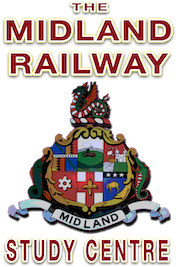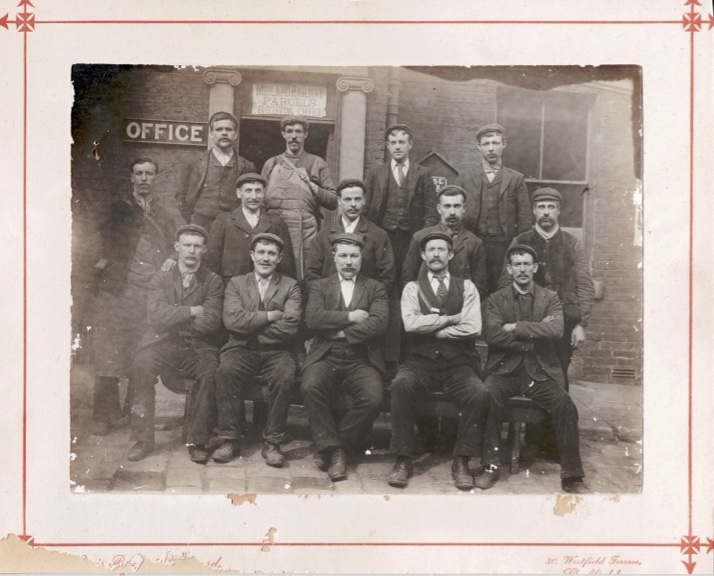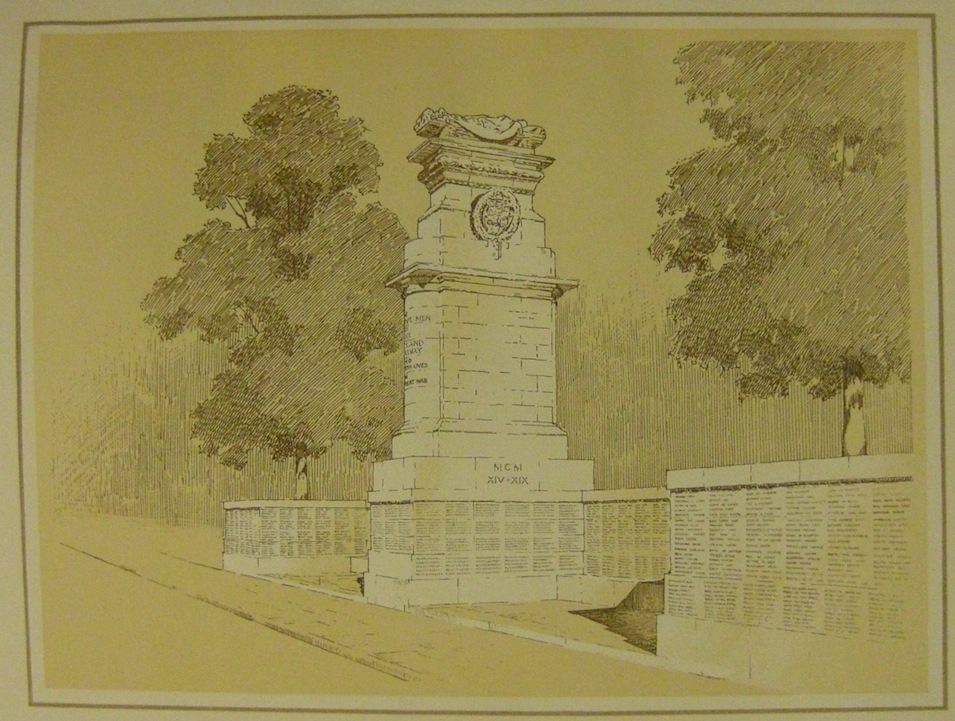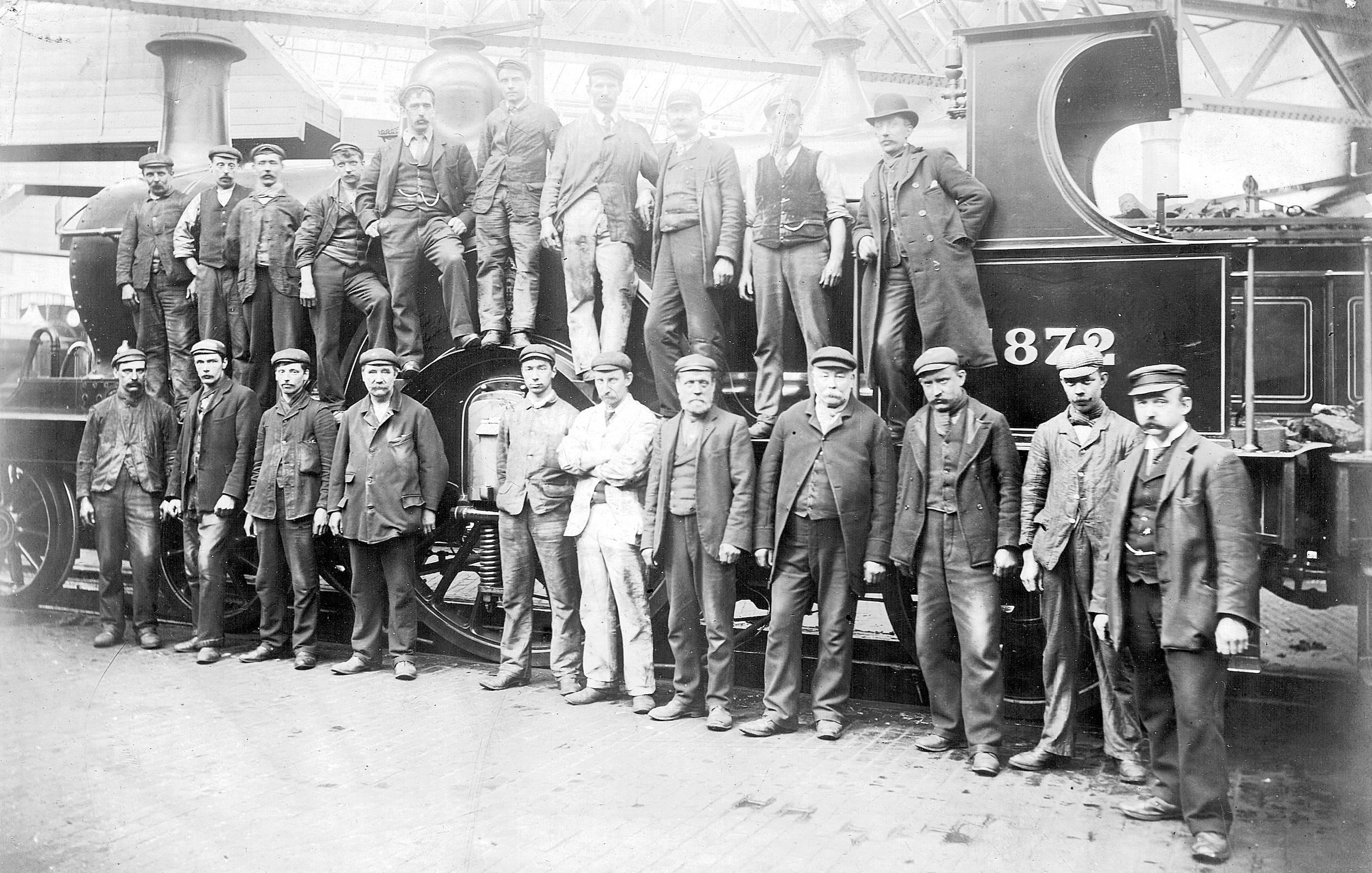

It is often asked, how many employees did the Midland Railway have? The answer is not easy to pin-down. Whilst the half-yearly reports to shareholders detailed many apparently arcane statistics (2,193,6389 train miles run in the first six months of 1898, 3,063 horses owned as of 30th June 1884 (a reduction of 106 on the previous six months), for example, these were all capital assets or measurable revenue. Staff were neither countable nor truly accountable due to the way employment was administered. This was usually devolved to Department level. For example, the Coaching Department was responsible for Station Masters, Porters, Signalmen etc., Locomotive Department for footplate crews and the Permanent Way sub-department of the Engineers for track labourers. This latter area was particularly vague in terms of employment numbers because of the ad-hoc nature of temporary or casual labour used. There is no better illustration of this than the Midland Railway's only Victoria Cross recipient in the Great War, Jacob Rivers of Derby. He was a causal permanent way labourer, largely due to his brother being a more established employee of the Engineers Department, and so despite his posthumous award, he doesn't appear on the Midland Railway company war memorial.
Back at Derby, headquarters would know how much each department was paying out in its wage bill as the amount was forwarded to each station master to pay the staff in and around his station, and of course there was very strict accounting at local level, but Derby's precise grip on the actual numbers was limited.
As a guide, however, we know that at the end of 1907 the number of employees was an implausibly precise 75,004, though this number comes from a 'fun facts' section about the Company at the back of a publicity brochure (and doesn't seen to have been repeated in any other year). Another entry in the same list: "Money Prizes awarded for Platform Gardens" - £197.
However the figures are compiled, we can extrapolate that over the 78 years that the Midland Railway was in existence. several hundreds of thousands of men (and maybe a couple of hundred women) will have been Midland Railway employees at some stage in their lives. That of course equates to probably a million or more descendants today who have Midland Railway ancestors, though few will likely know it.

Of course that leads to the inevitable question in the context of this page on this web site — “how many of those employees' records survive to be consulted”? While the answer is that it barely scratches the surface, it does actually amount to quite a large number. And we're pleased to say we have our fair share of them.

Each November we specially Remember those who fought, and far too often gave their lives, for their Country. Of those who made the ultimate sacrifice, 2,833 men were Midland Railway employees. We have a page dedicated to their memory with advice on how to find out more about them.
The Midland Railway made a decision a few years before the First World War which has huge implications for those of us today seeking information about the Company's employees. Until that point, most of the Company's departments tracked their employees using huge ledgers. The basis of these was that a "post" existed and the incumbent was recorded against it. When the job changed hands, the old name was crossed out and the new person's added below. Their wages were the main piece of information along with which post they had come from if transferred from elsewhere within the Company, and where they went when the left. The Locomotive tended to be a little more detailed in their record keeping, including some discipline matters and whether they would re-engaged them if they left. Most unusually for the period, the Loco Dept. even recorded their men's dates of birth — though this was more about tracking the all important date of their Seniority and proximity to “Age Limit” when they would be summarily required to retire — as much feeding the historian's thirst for knowledge.

Clearly the problem with this way of keeping records is that within 10 - 15 years, there was no longer room for further entries and the ledgers got very tatty. Pity the poor clerk who happened to be in-post when it came time to start a new District Staff Book — all the current employees' entries required dutifully transcribing for old to new. Conversely, from our perspective, the information contained in the old ledger was always considered likely to “come in useful one day” and so surprisingly many of them have survived to this day. The National Archives at Kew hold the bulk of them and these have been digitised and transcribed so their contents are searchable and viewable through the Ancestry genealogy web site — at a cost, of course.
We have the District Staff Books for Derby, Nottingham and Toton Locomotive Departments and these have all been transcribed, as have some of the National Archives's holdings. This date can be searched here on this site through our Staff Database (about which, more below).
So what of that big change? Gone were the large clunky ledgers that were soon in need of rewriting. In were individual foolscap record sheets or smaller cards, depending on Department. From where we stand, these were good in that they contained a lot more information but especially bad in that when they were no longer needed — a few months after an employee resigned, got the sack or died — their sheet would contribute to the Foreman's office fire. Consequently precious few survive. We are particularly pleased to hold the Ben Taylor Collection, a small but information-packed collection of staff records beginning in Midland Railway times for Derby's “Four Shed” — as the locomotive depot there was (and still is!) universally known.
Of course no one repository can have all the records, especially not a relatively small if specialised player like us in such a large subject area. What we do have to offer however, is years of experience in searching and accessing a wide variety of online platforms. If your ancestor, or someone you are otherwise interested in, worked for the Midland Railway at some point in their lives, please let us know. We may be able to assist you with new information about them, and even when we can't by adding them to our ever growing database of Midland Railway employees, who knows what cross-references may develop over time.
For much more information about using the Midland Railway staff records held by the National Archives through the Ancestry genealogy web site, we have these notes complied by the the late Glynn Waite in 2014. Whilst there have been some changes since Glynn prepared them, the release of the 1921 Census, for example, and a very much improved Newspaper archive, the basis of his guidance remains entirely relevant now.
We have no affiliation with either Ancestry nor FindMyPast and while we commend the access they provide, potential visitors are advised that they are commercial entities and charges are made. For that reason we have chosen not to provide direct links.
